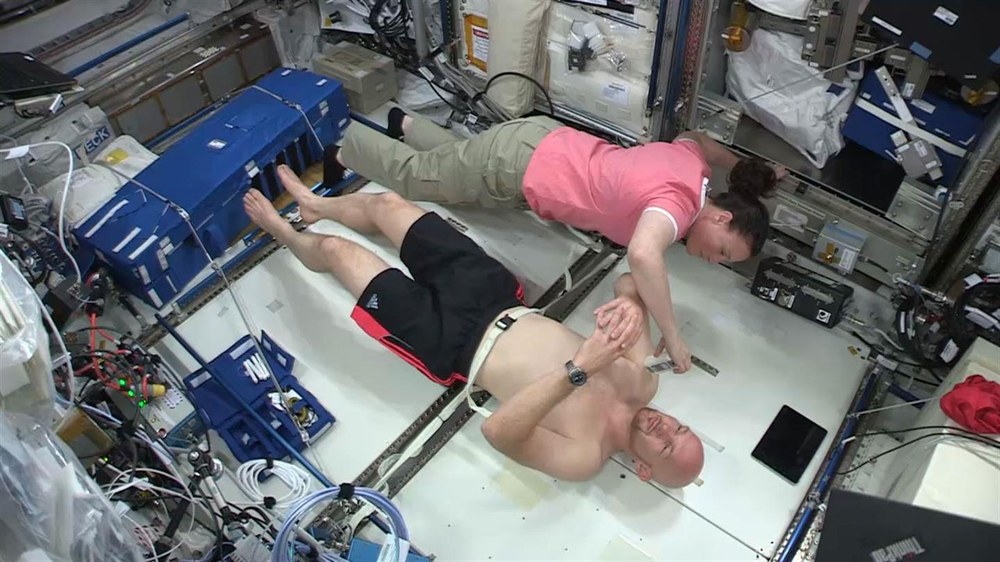Broschüre: Alexander Gerst (2018)
horizons – Aufbruch zu neuen Horizonten in Wissenschaft und Gesellschaft



Das Myotones-Projekt analysiert nicht-invasiv die grundlegenden biomechanischen Eigenschaften der Skelettmuskeln mit Hilfe eines kleinen Geräts. Mit MyotonPRO werden an Bord der Internationalen Raumstation ISS durch fehlende Schwerkraft bewirkte Veränderungen im ruhenden menschlichen Muskel (Tonus, Elastizität und Steifheit) bei den Astronauten gemessen und bewertet. Die Technik wurde bereits in Bettruhe-Untersuchungen erfolgreich angewendet und die Weltraumtauglichkeit des Geräts für Messungen in der Schwerelosigkeit in Parabelflügen nachgewiesen.
MyotonPRO misst die passiven Eigenschaften der oberen Skelettmuskulatur in ähnlicher Weise, wie der Arzt durch Abtasten der entspannten Muskeln Verspannungen und Verhärtungen untersucht. Hierzu wird ein kurzer mechanischer Impuls auf die Hautoberfläche gesetzt und die Oszillation des darunter liegenden Muskels digital gemessen. Die Daten geben präzise Auskunft über die Elastizität, die Steifheit und den Tonus des untersuchten Muskels im Ruhezustand. So kann erstmals der Muskelstatus objektiv, schnell und einfach bestimmt werden.
Zusätzlich zur Überwachung der physiologischen Parameter von Astronauten auf der ISS lässt sich mit dieser Methode auch der Erfolg von Gegenmaßnahmen bei Muskel- und Knochenschwund in Form von Sportprogrammen, die vor, während und nach dem Aufenthalt auf der ISS durchgeführt werden, überwachen und besser bewerten. Auf der Erde werden die Erkenntnisse zum einen für die Verbesserung von Rehabilitations- und Trainingsprogrammen, zum anderen aber auch für das Bewerten des Trainingserfolgs im Fitness- und Leistungssport genutzt.
